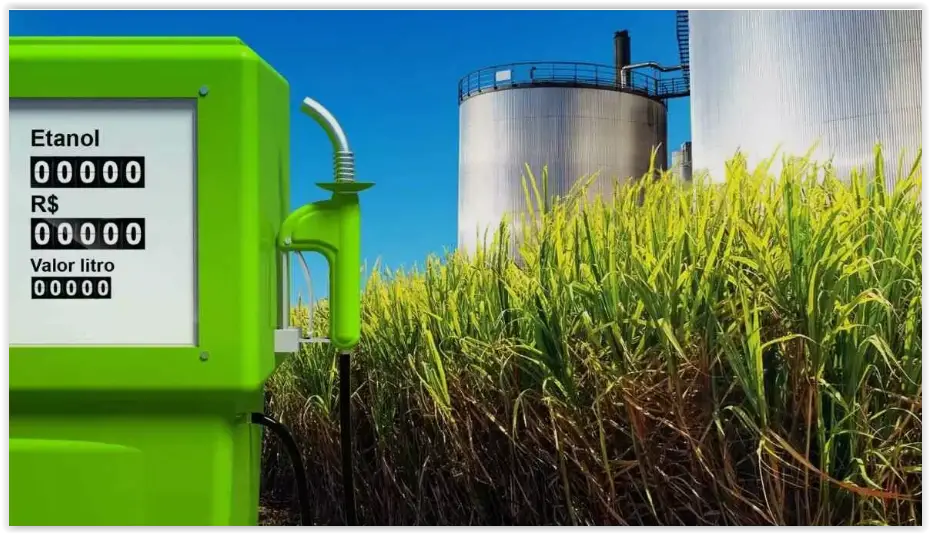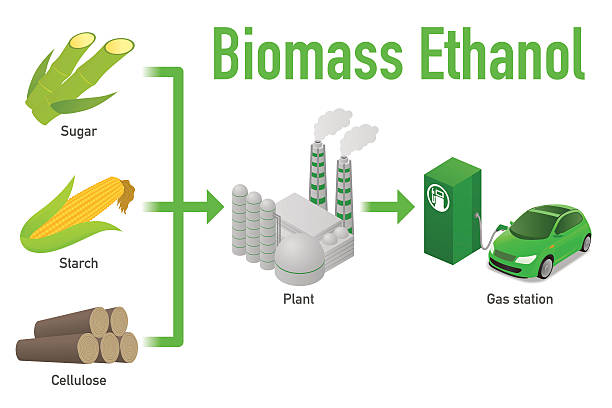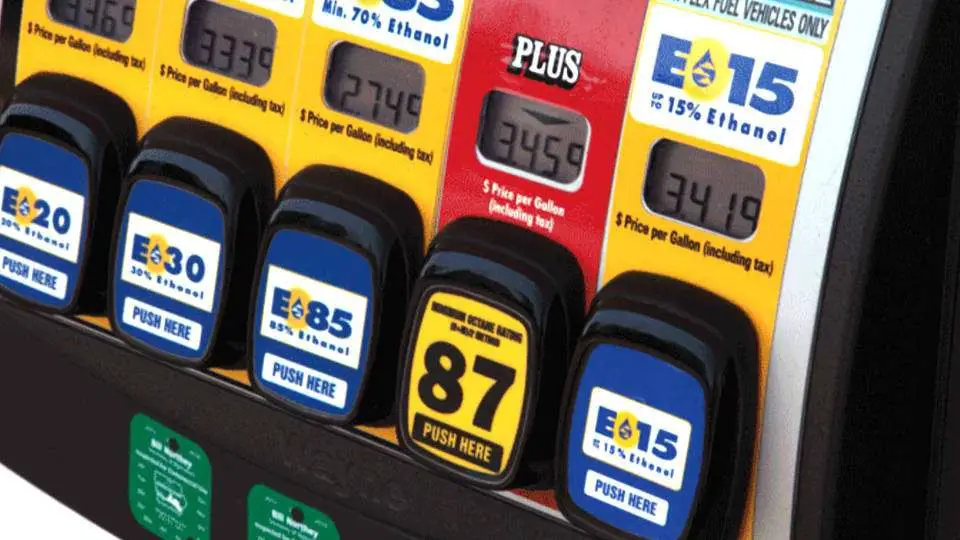
As the world shifts toward renewable energy sources, ethanol emerges as a compelling alternative to traditional gasoline. Derived from biomass such as sugar cane and beet root, ethanol is not only a renewable resource but also plays a significant role in reducing air pollution when blended with gasoline.
Ethanol: A Green Alternative
Ethanol, or ethylic alcohol, is a type of organic compound with a chemical structure that makes it suitable for fuel use. In the United States, over 98% of gasoline includes some amount of ethanol, typically E10 (10% ethanol, 90% gasoline), to help oxygenate the fuel and reduce emissions. The blend is designed to decrease the overall environmental impact of fossil fuels by cutting down on harmful emissions.
Brazil has been at the forefront of using ethanol as a primary fuel source, with vehicles there designed to run on ethanol concentrations ranging from 91.1% to 93.9% by volume. These vehicles demonstrate the high potential for ethanol to serve as a standalone fuel, rather than just a gasoline additive.

Ethanol in Automotive Technology
Historically, ethanol is no stranger to the automotive industry. The Ford Model T, one of the earliest mass-produced cars, was capable of running on either gasoline or ethanol, showcasing the versatility of ethanol as a viable alternative fuel. Today, flex-fuel vehicles (FFVs) can operate on mixtures containing up to 85% ethanol (E85), illustrating the adaptability of modern engines to different fuel sources.
Toyota’s recent development, the Innova HyCross, runs on 100% ethanol (E100) and highlights an innovative use of the fuel. This vehicle can travel 40% of its distance on ethanol and the remaining 60% on electricity, showcasing the potential for integrating ethanol with electric vehicle technology.
Environmental Benefits and Challenges
Ethanol-fueled vehicles produce lower carbon dioxide emissions compared to traditional gasoline vehicles. E85, an ethanol-gasoline blend containing 51% to 83% ethanol, contains fewer volatile organic compounds than pure gasoline, resulting in fewer emissions from evaporation.
However, it’s essential to address the myths surrounding ethanol use, particularly the belief that it harms engine life. While ethanol does act as a cleaning agent that can help maintain fuel injector cleanliness, it can affect the integrity of plastic and rubber components in engines, especially in higher concentrations. This can lead to issues like engine clogging and overheating.
Economic and Sustainable Impact
The use of ethanol as a vehicle fuel is not only an environmental consideration but also an economic one. Ethanol production from local biomass can reduce dependence on imported oil, boosting local agriculture and economies. Additionally, as a renewable resource, ethanol provides a more sustainable fuel option that can help mitigate climate change by reducing the use of finite resources.

The Road Ahead : The Fuel of Future
The feasibility of ethanol as a fuel for cars and other vehicles lies in the balance of its benefits and drawbacks. While it offers a significant reduction in carbon emissions and supports agricultural economies, the challenges related to engine compatibility and material integrity cannot be overlooked. Advances in vehicle design and ethanol production technology may soon overcome these hurdles, making ethanol a cornerstone of the sustainable energy landscape.
Ethanol’s role in the future of automotive fuel is promising but requires continued technological advancements and supportive policies to realize its full potential. As we drive towards a more sustainable future, ethanol stands out as a key player in the green energy revolution.


